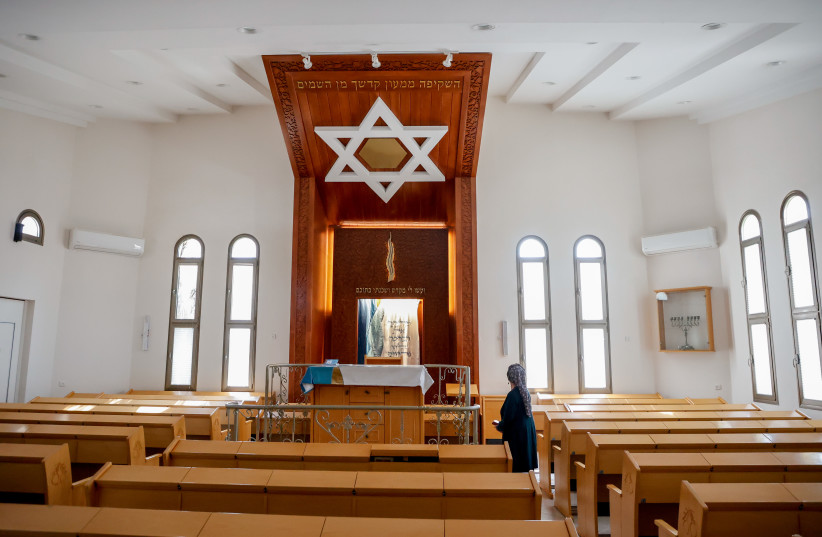Recruiting top talent for executive positions in the business world can be a challenging task, but what happens when an executive recruiter decides to lend a hand in the world of synagogue recruitment?
As a veteran Israel-based executive recruiter, I recently found myself navigating unfamiliar territory when – quite naively – I volunteered for a rabbi recruitment committee for our mostly “Anglo” synagogue in Israel. In this article, I aim to shed light on my adventure, exploring the contrasts and nuances that arise when shifting from the corporate world to the “shul world.” Through this process, I discovered the benefits of involving a professional recruiter in the rabbi recruitment process.
Stepping into the committee’s initial meeting, I quickly realized the stark reality of the situation. While everyone had an opinion on the kind of rabbi we should hire, no one else had a clear idea how to go about it. Drawing from my executive search experience, I introduced a structured process that involved defining the position, marketing the job, screening resumes, conducting Zoom and in-person interviews, and finally making an offer.
However, I soon discovered challenges unique to synagogue recruitment. Every decision required the approval of the entire committee of seven people, and finalists had to undergo a Shabbat “try out” at the shul, followed by a membership vote. It appeared that with 200+ decision makers, this process would take considerable time and effort. And it did.
Since the position required full fluency in Hebrew and English, our target population was limited. Collaborating closely with our dedicated committee chair, we began promoting the job by reaching out to various rabbinical organizations and leveraging platforms like LinkedIn and Facebook Groups. Traditional advertisements were also placed in the weekly Torah Tidbits publication and a newspaper. These efforts garnered approximately 25 CVs, which the committee discussed and narrowed down to eight candidates for Zoom interviews.

I should add that we are blessed to live in a world with WhatsApp groups and the greatest invention for committees: WhatsApp polls. We voted on everything – and I mean everything. At least this reduced the number of committee meetings.
With eight candidates in the pipeline, we faced the challenge of crafting suitable interview questions. Drawing from my experience as an executive recruiter, I developed a questionnaire that required discussion, analysis, and votes from the committee before being approved. Since I have interviewing experience, I took on the role of conducting most of the Zoom interviews. The ability to record the sessions proved invaluable for committee members who couldn’t attend live. An interesting distinction I observed was that while business candidates usually research their potential employers before an interview, most of the rabbis did not.
After multiple rounds of voting, we narrowed the pool down to five candidates and in-person discussions were scheduled. Fortunately, another committee member led this process, inviting each candidate for a 90-minute face-to-face meeting with the committee of seven. Despite my initial concerns about the panel interview format, it proved successful, although one candidate later confessed to finding it incredibly stressful. Eventually, we arrived at a shortlist of three finalists.
During the process, our committee chair introduced me to the term probeh, referring to a rabbi’s tryout visit. Each of these visits required appointing a special committee due to the extensive work involved such as arranging housing, meals with members, speaking at various minyans, a kiddush, classes in Hebrew and English, and an extensive Q and A session. I had the privilege of running the public Q and A sessions, which allowed members to assess the candidates firsthand. It kind of felt like I was a talk show host. Unfortunately, shortly before the membership votes, one of the three finalists found another position, leaving us with two candidates.
The final stage involved two community votes: one to choose between Rabbi A and Rabbi B, and the second to determine whether the selected rabbi would be hired. An overwhelming majority voted in favor of hiring the rabbi, indicating a vote of confidence in the process and bringing our search to a successful conclusion.
Tips for searching for a rabbi
Based on my experience, I offer the following tips for those embarking on a rabbi search:
- Seek guidance from recruitment experts and previous members of search committees.
- Form a diverse committee that includes individuals with hiring experience. I find it difficult to understand how a rabbi search committee can operate successfully without a recruitment professional involved, who has experience outside the “shul world” (although I have heard it is common practice).
- Conduct the process professionally and keep the membership continuously updated. This instills confidence in the search. We announced our final candidates to the community via a super professional promotion piece which included color photos of the rabbis and their families.
- Prepare for a long and challenging process. Our committee’s journey, from the creation of the WhatsApp group to the final vote and approval, took just under nine months of intensive effort. Business recruitment typically takes 60-90 days. The time frame could be reduced with good planning.
In conclusion, I hope the information and insights shared in this article will be useful to synagogue leaders in Israel or elsewhere who are initiating a similar process. Recruiting a rabbi involves unique dynamics, but the same basic skills and processes used in an executive search can strengthen the recruitment effort. By involving a professional recruiter, tapping into diverse networks, and conducting a thorough process, you can increase the likelihood of finding the right rabbi for your community.
The writer is managing partner of Amcon Recruitment Ltd., Ra’anana, chuck@amconmarketing.com.
